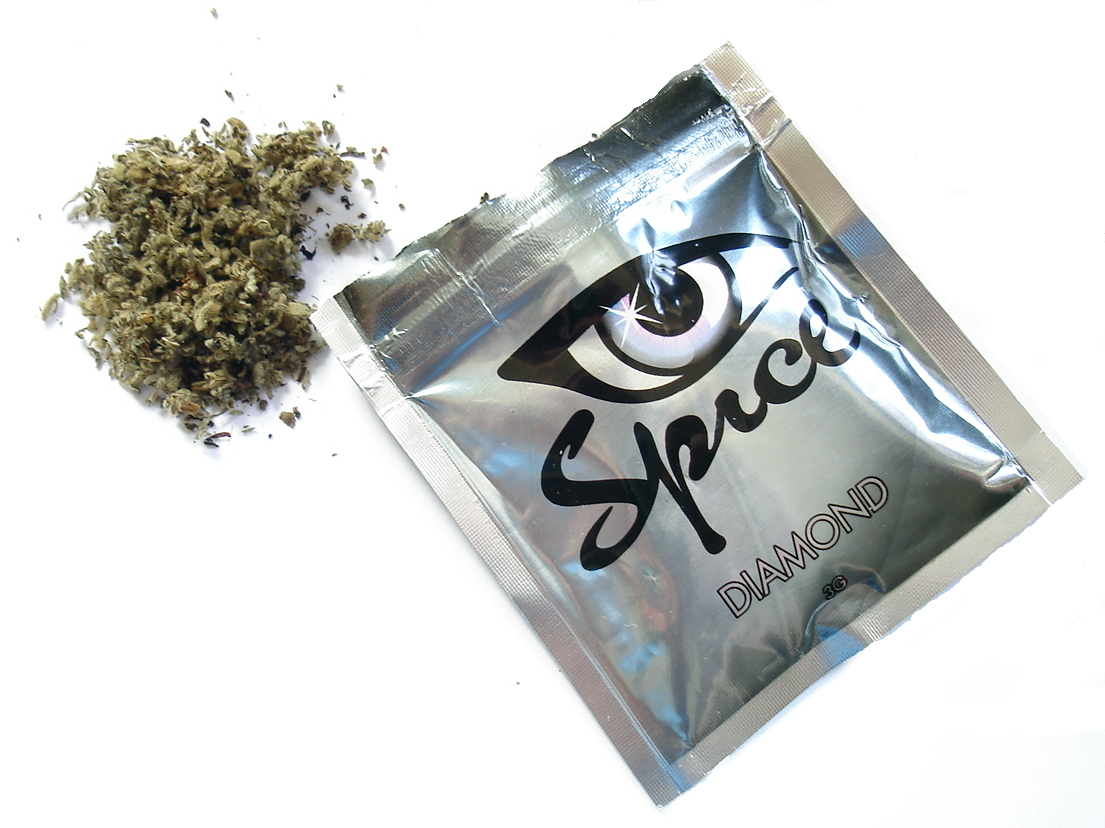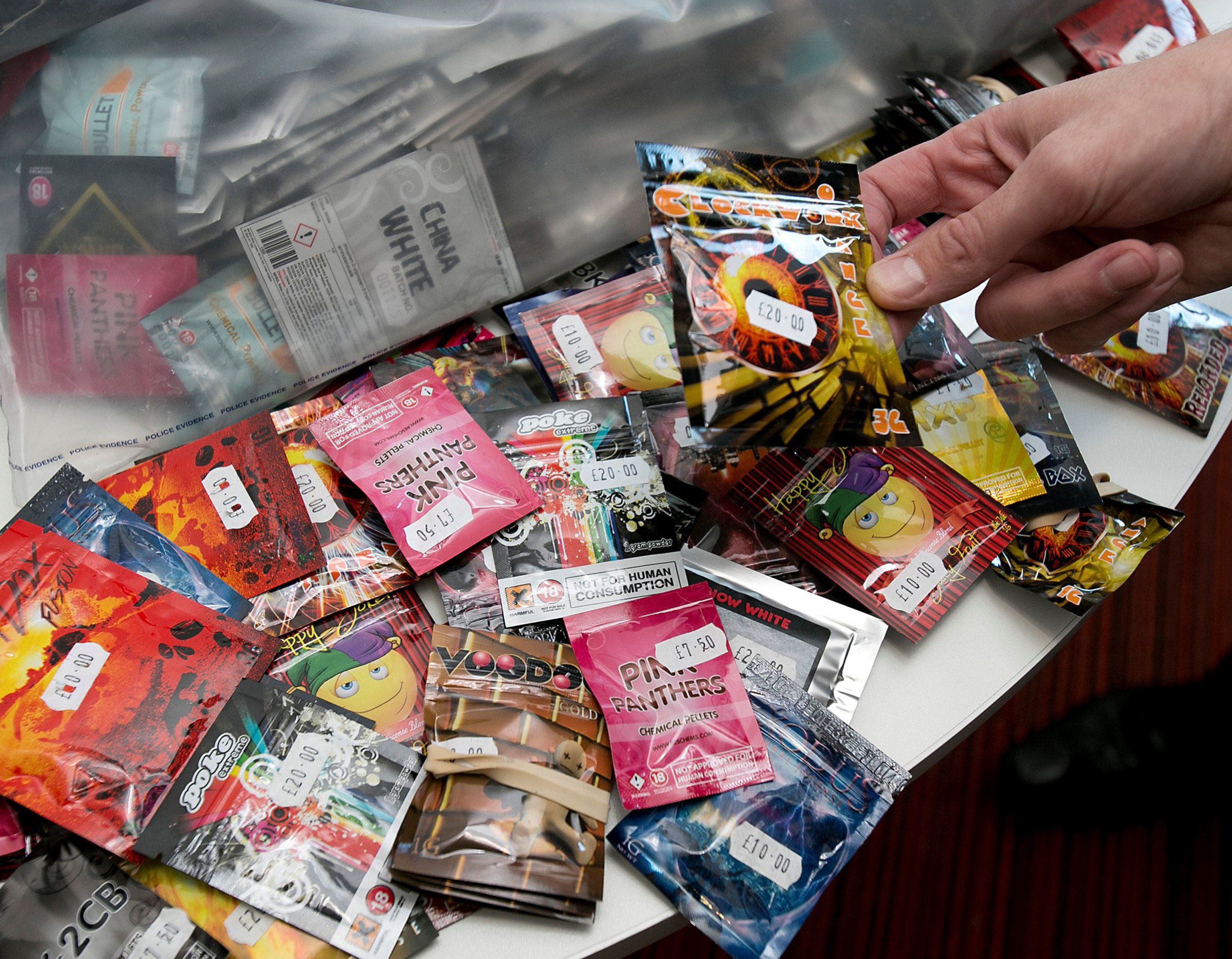Making Spice a Class A drug is likely to make its already devastating effects on vulnerable communities worse not better, politicians have been warned.
In recent months, some MPs have called on the Government to consider reclassifying Spice as a Class A substance, with a debate to be held on the issue in Parliament’s Westminster Hall next week.
They believe bold action is required to tackle the plight caused by Spice – the brand name for a group of drugs called synthetic cannabinoid receptor agonists (SCRAs) – not just for those affected by its use, but also for those constituents who feel uncomfortable or unsafe in their vicinity.
Known originally as a ‘legal high’, Spice was initially produced as a legal alternative to cannabis and was sold over-the -counter in labelled packets at so-called ‘head shops’. This ended in 2016, when the Government made it illegal to manufacture or supply Spice under the Psychoactive Substances Act. Its use was also prohibited when the Government made it a Class B drug under the 1971 Misuse of Drugs Act later that same year.
But, the change in the law pushed the market for Spice underground, where it has become much more damaging, most significantly for rough sleepers and those in prisons, the two largest cohorts using this ‘psychological cosh’.
A highly addictive and volatile drug, Spice can lead to users becoming comatose, aggressive, having seizures, heart problems and mental health issues, and has left cash-strapped drug treatment and homelessness services feeling at a loss as to what to do to help those under its influence.
In 2017, 61 deaths were linked to New Psychoactive Substances (NPS), including Spice, according to the latest figures from the Office of National Statistics.
It is understood that some MPs believe that making Spice a Class A drug would help police to better deal with the issue by giving them more adequate powers to do so.
Although it is already a Class B drug, police in some areas believe that this does not provide enough of a deterrent to those supplying and dealing the drug and that, if Spice was reclassified as a Class A substance, the penalties would be greater, increasing the risk involved in supplying and dealing Spice, and therefore its price. According to this rationale, a rise in cost would then help to suppress demand.
Politicians are keen for their calls to make Spice Class A not to be seen as a signal of greater criminalisation of vulnerable users.
Police in some areas are already reluctant to enforce the law around possession of Spice as a Class B drug, it is understood, and instead, are using public space protection orders to move users of the drug on, shifting the problem elsewhere. When such orders are repeatedly breached, magistrates feel they have little option but to send users to prison, where Spice is known as the ‘bird killer’, is at the heart of a hugely lucrative organised crime market and more readily available than in the community.
In August, Marc Jones, Conservative Police and Crime Commissioner (PCC) for Lincolnshire, penned an open letter to the Home Office calling for Spice to be reclassified as a Class A drug. It was signed by all of the Conservative PCCs in England and Wales.
Referring to Spice as “one of the most severe public health issues we have faced in decades”, Mr Jones said the response to it has been “woefully inadequate” and had placed a disproportionate demand on the police.
Arguing for its reclassification, Mr Jones said the effects of Spice are akin to drugs such as heroin and “it is therefore imperative that it and the dealers who peddle this misery are treated with the same severing and concern”.
“As public health and substance misuse services are not currently taking the lead in meeting this growing challenge it is falling to the police to respond to public concerns of community safety, adding yet further to policing demand without addressing the underlying issues,” it added.
The letter did, however, acknowledge that Spice is a “complex issue [that] can only be addressed collaboratively” and that it is “vital that the level of support to those hooked on Spice is placed firmly on the agenda including pathways away from criminalising the vulnerable where possible and ensuring appropriate services are in place to treat their addiction.”
Dr Rob Ralphs, a senior lecturer in criminology at Manchester Metropolitan University, has researched Spice in prisons and within the homeless community in the city. He believes that making Spice Class A will make no real difference to its use, but may make the situation worse.
While the market for Spice is, at present, relatively stable with four or five different strains of the drug in circulation, he said its potential reclassification could drive innovation, leading to new strains being developed to circumvent it.
“Every time there’s been a change in the law, the next generation [of Spice] has been even stronger,” he told me.
“The big thing is why the homeless and prison populations are using it in the first place. It’s about putting money into engaging people into treatment services and trying to reduce the market. If you can reduce the market, the demand for it, then you will reduce it.”
Professor Harry Sumnall, who specialises in substance use at Liverpool John Moores University’s Public Health Institute, also believes reclassification could make the problem of Spice worse.
“When you take a police-oriented approach to a complex health and social issue you can never address the fundamental root causes of why some cities in the UK are experiencing harms with these substances,” he told me. “I don’t think the emergence of Spice and the concentration of harms in some users of Spice is down to the fact that the police aren’t arresting enough dealers. I don’t accept the fact that the police can’t arrest people or are unlikely or unwilling to prioritise the pursuit of dealers because it’s a Class B. There’s nothing to stop police prioritising dealers or users of Spice.”
He said the harms associated with heroin and crack cocaine “haven’t been resolved by the fact that they’re Class A drugs” and that focusing on targeting dealers with harsher penalties would not lead to users being safer or healthier.
“In fact, criminologists would argue that it actually makes the market more harmful because the risks increase, the price of drugs increase which makes the market more profitable,” he said. “The types of organised crime groups that might then enter the market because the profits and the risks are higher [changes] and when that happens violence and secondary harms increase.”
Professor Sumnall believes calls to make Spice Class A are a “symbolic response” to the issue, which “doesn’t actually translate into any meaningful public health action unless there’s a real commitment to ensure good coverage of high quality services for these individuals”.
“The broader context of the the failings in the criminal justice system, the fact that mental health service provision is in crisis, that local areas are experiencing around about a 30% cut in treatment budgets – those are the fundamental issues that need to be addressed rather than a totemic, symbolic response by making it a Class A,” he added.
“If you have actions that increase the price of synthetic cannabinoids but you’re not addressing these underlying issues of people’s use disorders and dependency, is that going to lead to further crime? I think the answer is yes.”
The academic also believes that if Spice was made a Class A drug, its users would be further criminalised.
“I do appreciate people saying that it wouldn’t only be a criminal justice led approach, that it wouldn’t only be arresting people, but in the current climate and the precarious nature of our drug and alcohol services and mental health and homelessness services, I think that is what will happen,” he told me. “The police response will predominate because the rest of the treatment services are in such a state at the moment that it might be difficult for them to respond.
“If it is made Class A then there are always going to be forces around the country that use those powers to the maximum. They might say ‘we won’t target users’, but we know with users of heroin and crack cocaine that’s not the case. And that doesn’t mean that when people are arrested they can’t go through arrest referral routes into treatment, that can still be useful, but it also runs the risk of increased criminalisation.”
“Looking at the history of substance use in the UK, new behaviours and new substances of concern emerge regularly,” Professor Sumnall added. “Synthetic cannabinoids are just the latest of that affecting a particular population but we know what the fundamental problems are – that we don’t have decent and well-funded mental health provision, there’s not enough public and social housing, criminal justice and secure settings are in crisis, drug treatment services are struggling.
“We know what the causes are and if we want to build a response to Spice use and the next drug of concern which will emerge in the next five or 10 years, that’s what we should be focusing on, not a piecemeal, criminal justice-led response to individual drugs in particular high-risk populations.”
Sunny Dhadley, who works at Wolverhampton’s Service User Involvement Team (SUIT) with those who have drug and alcohol problems, also worries that making Spice a Class A drug would mean harsher penalties for those using the drug, individuals “who are already demonised within society”.
Even if Spice became more expensive as a Class A drug, he believes that it would ultimately have no effect on its demand.
“What would probably happen is the quantity that people are buying would reduce which means that there would be an increase in activity related to acquiring the finances to buy what would be the same amount,” he told me.
“Rather than deter those who are manufacturing and supplying, the danger is there will be harsher penalties for individuals caught in possession or using even small amounts of Spice. History has taught us that just because something is classified or reclassified, the demand doesn’t go away, so the supply will be in place. Unless the police are proactively shutting down manufacturers, I can’t see it doing much more than criminalising people – people who are already quite disenfranchised or on the outskirts of society.
“The majority of people who have issues with Spice and similar substances have got other multiple complex needs. There’s a larger question around how we can get people the support they need, but also deal with some of the more deep-rooted issues that people who are problematically using Spice encounter.”
A Home Office spokesman suggested that the Government has no current plans to consider reclassifying Spice.
“We recognise how dangerous synthetic cannabinoids, such as those supplied under the brand name Spice, can be and the devastating impact that they can have on communities, families and the individuals taking them,” he said. “That is why we acted to control these substances as Class B drugs under the Misuse of Drugs Act and give the police the powers they need to take action, including making possession illegal and delivering longer sentences for dealers.
“Following two previous changes to legislation, the most recent controls for ‘third generation’ synthetic cannabinoids only came into effect in December 2016. However, as with all controlled drugs we will continue to monitor their impact.”
Hardeep Matharu is a senior writer and researcher at Volteface. Tweets @Hardeep_Matharu


